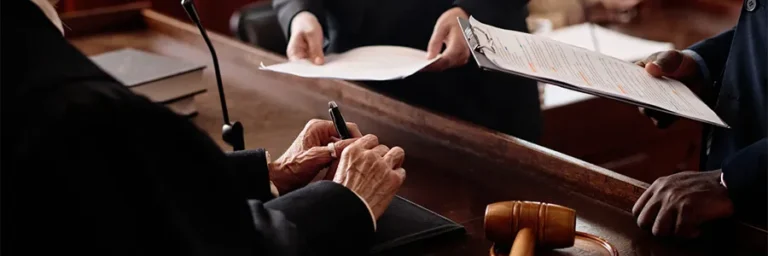 The administrative law judge could ask a vocational expert (VE) to testify at your hearing. Some administrative law judges ask a vocational expert to testify in virtually all of their cases involving adults. If a VE is going to testify at your hearing, you will be notified in advance in the Notice of Hearing.
The administrative law judge could ask a vocational expert (VE) to testify at your hearing. Some administrative law judges ask a vocational expert to testify in virtually all of their cases involving adults. If a VE is going to testify at your hearing, you will be notified in advance in the Notice of Hearing.
Vocational experts are neutral witnesses. Vocational experts are not supposed to provide their own evaluation of the medical evidence in your case, state whether you would be hired for a job, or state that you are or are not disabled. Instead, the vocational expert is there to help the judge understand the demands and requirements of your past relevant work; and the demands of other jobs that exist in significant numbers in the national economy.
Past Relevant Work
The vocational expert helps the judge understand your past relevant work—the significant jobs you have done in the past 15 years. The vocational expert will describe each of these jobs as you did them and as they are usually performed in the economy. (Your claim can be denied if you can still do your job as it is usually performed even if you can no longer do the job the way you actually did it.)
The vocational expert will also describe the skill and exertional level of your past relevant work. The exertional level means, for example, how much you had to lift and how much standing and walking was involved in these jobs. The skill level depends on how long it would take a new employee to learn to do your job with average proficiency. If it would take more than 30 days, you may have acquired work skills that could be transferable to other, easier jobs. If so, the vocational expert will describe your transferable skills, state what jobs these skills are transferable to, and how many of these jobs there are in the economy.
Hypothetical Questions
The judge and your lawyer will ask the VE a series of hypothetical questions based on different possible work limitations that you may have. For example:
What jobs, if any, could a person of the same age, education, and work history as the claimant be able to do if she needed to alternate between sitting and standing every 30 minutes, could regularly lift no more than 10 pounds, and could not reach above her head, stoop, kneel, or bend?
Then, often after the hearing is over, the judge will determine which one of the hypothetical questions most closely describes you. The judge’s decision on your disability claim may be based on the vocational expert’s answer to that question.
Cross-Examination
After the judge initially questions the expert, your lawyer will have an opportunity for cross-examination. Your lawyer’s job is to make sure there is a legitimate basis for the expert’s testimony. Often your lawyer will ask the expert additional hypothetical questions incorporating any of your limitations that the judge left out. Your attorney can best ask those questions that are based on the written medical evidence and your credible testimony, to establish that a claimant with your limitations could not do your past relevant work and that there are no other jobs that such a claimant can do.














